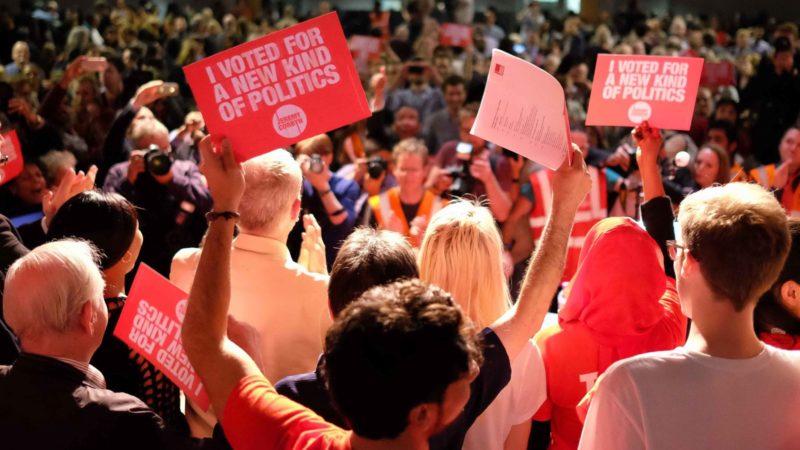
Momentum has launched a toolkit to provide a “practical guide to transforming your local economy, using the untapped powers of local government to bring about real and lasting economic change in your community”, LabourList can reveal.
Unveiling the 50-page document today, ahead of the local elections taking place across parts of England, Wales and Scotland next month, the left-wing group urged local leaders and candidates across to make use of it – adding that further toolkits will be created in the future for trade unionists and other activists.
Divided into seven sections, the toolkit gives an introduction to community wealth building, offers advice on how to create governance structures for wealth building, details the ‘five pillars’ of community wealth building and gives local elections hopefuls information to “begin advancing community wealth building”.
Momentum will hold an event this evening, ‘Building and Winning Power for Municipal Socialism‘, during which attendees will hear “about the steps towards socialism we can take right now” and “plan ahead for what we do in office”.
Momentum co-chair Gaya Sriskanthan told LabourList the toolkit, developed in collaboration with the think tank the Democracy Collaborative, is a “vital resource” that demonstrates how “insourcing, local procurement and new democratic forms of ownership can radically transform our local areas”.
She added: “In the coming weeks, Momentum will be mobilising to elect socialist councillors across Britain, from Worthing to North Ayrshire. It’s no coincidence that many councils pioneering community wealth building are run by socialists determined to stand up to corporate interests and put people first. We encourage Labour members and supporters to join our call tonight, and join us on the doorstep in the fight for municipal socialism.”
LabourList understands that Momentum will be running campaign days towards the end of April in Kensington, North Ayrshire and Southwark, getting its members to canvass in support of socialist Labour council candidates.
The toolkit states that each action plan for community wealth building will be different, but offers several examples of strategies already developed by local authorities, including in Preston City Council and North Ayrshire Council.
The authors argue that the approach has “proving very popular, politically and electorally” in local authorities that have adopted a community wealth building strategies “linking new bottom-up forms of development to create an economy in which all can flourish” around ‘five pillars’:
- “Plural ownership of enterprise through worker and consumer cooperatives, employee ownership, social enterprises, community land trusts, municipal ownership and enterprise, and more, based on the recognition that the ownership of productive capital is at the heart of where power lies in any political-economic system;
- “Democratic control of finance, redirecting money in service of the real economy through public and community banks, credit unions, targeted public pension investments etc;
- “Fair employment practices to build real jobs and decent work and conditions, and advance living wages and trade union rights;
- “Mobilising land and housing assets to build real wealth in communities, bringing local land and real estate development back under public control, combatting speculation and displacement; and
- “Progressive procurement by local government and place-based “anchor institutions” to re-localise economic activity, build local multipliers and end leakage and financial extraction.”
Following the collapse of a major shopping centre development in 2011, Preston City Council developed a strategy around publicly owned “anchor institutions”, urging them to pay the living wage and procure from local businesses.
The council also began investing the council’s pension fund locally and using planning to support local employment. The local authority was the only Labour-led administration in Lancashire to retain all its seats in the elections last May.




More from LabourList
Restoration announce recommendations for NEC candidates
‘Factionalism at the top is weakening Labour – and handing a gift to Reform’
‘Europe must stand strong on its own as US security guarantees grow conditional’